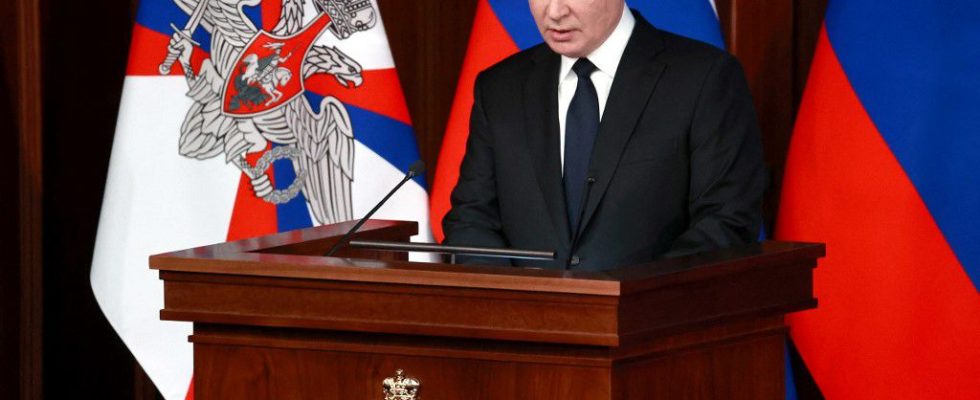“It’s a law designed for a big war, a general mobilization. And right now, it smells like a big war.” The statement is from Andrei Kartapolov, chairman of the defense committee in the Duma (the lower house of the Russian parliament). It’s July 25, and the former general-turned-deputy defends before his colleagues a bill on military service and mobilization. On the program of his text: raising the age limit for service from 27 to 30 years and new fines targeting those who refuse to report to the military police station: up to 30,000 rubles (just over 300 euros) for natural persons, up to 400,000 rubles for companies and organizations that refuse to cooperate with the authorities.
Above all, Andrei Kartapolov’s bill provides for an immediate ban on leaving Russian territory for people summoned to be mobilized or for their military service. The same day, the law is adopted without firing a shot. As much as the content of this text, Kartapolov’s statement caused a lot of talk. Is the Kremlin preparing for general mobilization, or a new wave of “partial mobilization”?
Refusal to open its doors to officers
The warning signs are multiplying for Russians wishing to escape the fighting in Ukraine. Last April, the Russian Parliament adopted a bill allowing military commissariats to transmit mobilization orders to conscripts electronically. Previously, these orders could only be given in person and against signature: many potential recruits had been able to escape mobilization by refusing to open their doors to the officers. On August 3, the government gave a favorable opinion on a new bill making the refusal to mobilize punishable by five years in prison. The Kremlin is also working on setting up a unified electronic register of people who can be mobilized.
“The overall picture is a series of not necessarily linked attempts to fill the gaps that appeared during the mobilization period” last fall, considers Russian political scientist Ekaterina Schulmann in an interview given to the Russian-language edition of RFI. At the time, numerous loopholes in the regulations and the archaisms of a very little digitized system had allowed hundreds of thousands of young men who could be mobilized to flee the country.
“It may seem strange that the authorities did not have at that time mechanisms to punish the refractory, analyzes political scientist Dimitri Kolezev. But I think they did not want to put people’s backs against the wall by fear of a social explosion. Those who went to the front were those who were loyal to power and believed in propaganda. In the event of a new wave of mobilization, it will be necessary to catch those who do not want to go. It is for them that these new repressive mechanisms are put in place.”
Silent mobilization
This new wave could be a military necessity, if the Ukrainian army manages to break through the Russian defenses in the south of the country. For some experts, it will be essential even in the event of stabilization of the front, to allow Moscow to resume the offensive next winter. “It is absolutely certain that there will be a new wave”, considers the analyst Ian Matveïev, quoted by the independent site Important Stories. Putin simply has no other way to find enough soldiers.”
The Russian authorities have undoubtedly learned another lesson from their chaotic troop raising in the fall of 2022: the official announcement of a wave of mobilization is likely to provoke panic. Here too, the Kremlin has given itself the means to be much more discreet. First of all, because the presidential order of “partial mobilization” technically remains in force, and allows the military commissariats to resume their work at any time without any new official order being necessary. And then, because even without mobilization, the Russian army has another tool. It is no coincidence that the legislative provisions of recent months concern mobilization as much as military service: twice a year, hundreds of thousands of conscripts join the barracks, and if the legislation prohibits deploying them in combat, cases of pressure on conscripts to make them sign a professional military contract and send them to the front are legion. Future mobilization will be silent. And to escape it, much more difficult.
